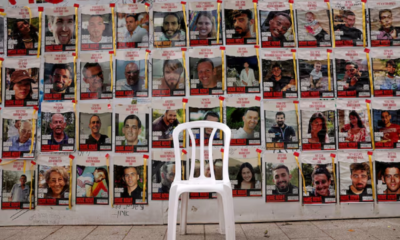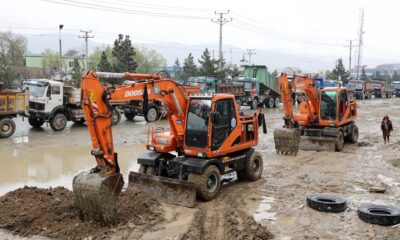Latest News
Reactions over Pakistan’s forced deportations of Afghan immigrants
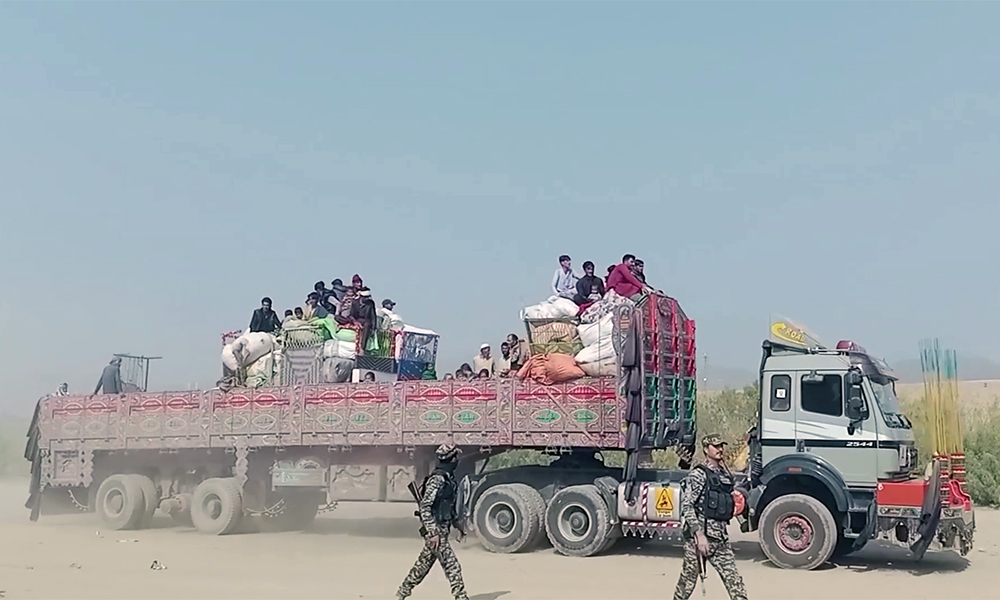
The forced deportation of Afghan immigrants from Pakistan has faced various reactions across the country.
Residents of Balkh, Jawzjan and Sar-e-Pul provinces condemn the expulsion of Afghan immigrants from Pakistan, asking Islamabad to stop this process and let Afghan immigrants leave this country gradually.
Pakistan’s action to forcibly deport Afghan immigrants has triggered the anger of Afghan citizens.
“Pakistan has violated international law with this action. Now that the immigrants are returning from Pakistan, we appreciate and welcome them,” said Nawed, a resident of Balkh.
In the meantime, with the arrival of the cold season, another concern is that the migrants will face serious challenges and need cooperation.
“The cold season is approaching and life is getting difficult, and we ask the government to take care of the migrants,” said Ziba Aminyan, a resident of Balkh.
Residents of Jawzjan and Sar-e-Pul provinces also said that they are ready to cooperate with the returnees.
“We ask the aid organizations and the Islamic Emirate to provide work, clothes, food and shelter for the returnees,” said Ghulam Sakhi Frootan, said Sar-e-Pul resident.
“The forced deportation of immigrants from Pakistan is an un-Islamic and inhumane act and is against the culture of neighborliness. I request all my compatriots to stand by their deported compatriots in this difficult situation and ask them to support them in every way and stand beside them,” said Juma Khan, a resident of Jawzjan.
Simultaneously, Balkh province’s directorate of refugees said that they are prepared to deal with returning migrants from Pakistan.
“For all returning migrants, we assure them that the Islamic Emirate is at their service and provides them with work and shelter,” said Asadullah Wafa, head of Balkh’s migrant affairs.
The process of forced deportation of immigrants has also faced international reactions, from the United Nations to other human rights institutions. Everyone has clearly said that Pakistan should stop the current process of deportation.
Although the residents of the northeastern provinces of the country welcome the return of Afghan immigrants from Pakistan, they consider Pakistan’s policy towards immigrants a wrong, inhumane and hasty.
“The Islamic Emirate should provide shelter for the returnees because they are Afghans and should return to Afghanistan,” said Abbas, a resident of Takhar.
“Afghanistan is currently safe. I ask the Afghan immigrants to return to their country,” said Safan, a resident of Takhar.
Residents of the Northeast ask people to help the immigrants who return from Pakistan with coordination, like they gave a handful of hands to the Herat earthquake victims, so that they do not feel indifferent in their homeland.
“We are asking the current government of Afghanistan to create jobs for the immigrants, and just as they took the hands of the Herat earthquake victims, now is the time to take the hands of the immigrants,” said Dawood Ahmadi, a resident of Takhar.
“Pakistan has imposed a restriction on Afghan immigrants that they can only carry 50,000 Pakistani rupees with them when they return,” said Ahmadullah, a resident of Takhar.
The residents of Kunduz and Badakhshan provinces welcome the return of the migrants and call on the IEA and aid institutions to cooperate with them.
In Herat, the residents have also reacted to the wave of deportations of Afghan immigrants from Pakistan. They say that in a situation where the neighboring countries need to be more humble with the Afghan people and help them, they make the current crisis in the country worse.
Some experts also say that the process of deporting Afghan immigrants from Pakistan deepens the humanitarian crisis in Afghanistan. It is necessary for the interim administration of Pakistan to show flexibility and deal with the Afghan immigrant community in accordance with international conventions.
One month ago, the government of Pakistan announced that it would deport illegal immigrants from the country, now this process has officially started.
Latest News
Three road construction projects launched in Kabul
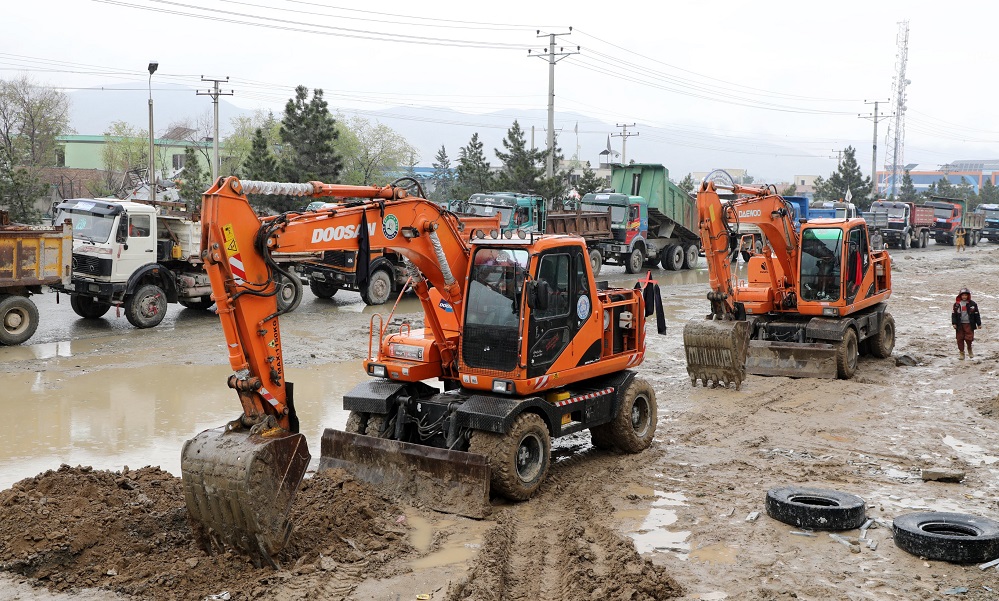
Three road construction projects worth about one billion Afghanis started in capital Kabul on Saturday.
The projects were inaugurated by Deputy Prime Minister for Economic Affairs Mullah Abdul Ghani Baradar.
The projects are: the second phase of Kotal Khairkhane road, the first part of the Shahid square to Qasaba, and the Airport road to Gumruk.
In the inauguration ceremony, Mullah Baradar said that Kabul municipality is working hard to beautify and regulate the city, and people should cooperate with the government in protecting public benefit projects.
He directed the officials of Kabul municipality to complete the mentioned projects on time and with good quality.
The second phase of Kotel Khairkhaneh road is 2.5 kilometers long and 60 meters wide. Thie road will cost 364 million Afghanis and will be completed in 20 months.
The Shahid square-Qasaba road is 1.8 kilometers long and 45 meters wide, which will be built at a cost of 175 million Afghanis in one year.
The Airport-Gumruk road is 2.7 km long and 60 meters wide, which will be completed at a cost of 407 million Afghanis in 20 months.
The projects are funded by Kabul Municipality.
Latest News
Russian defense minister says main threat for SCO countries emanates from Afghanistan
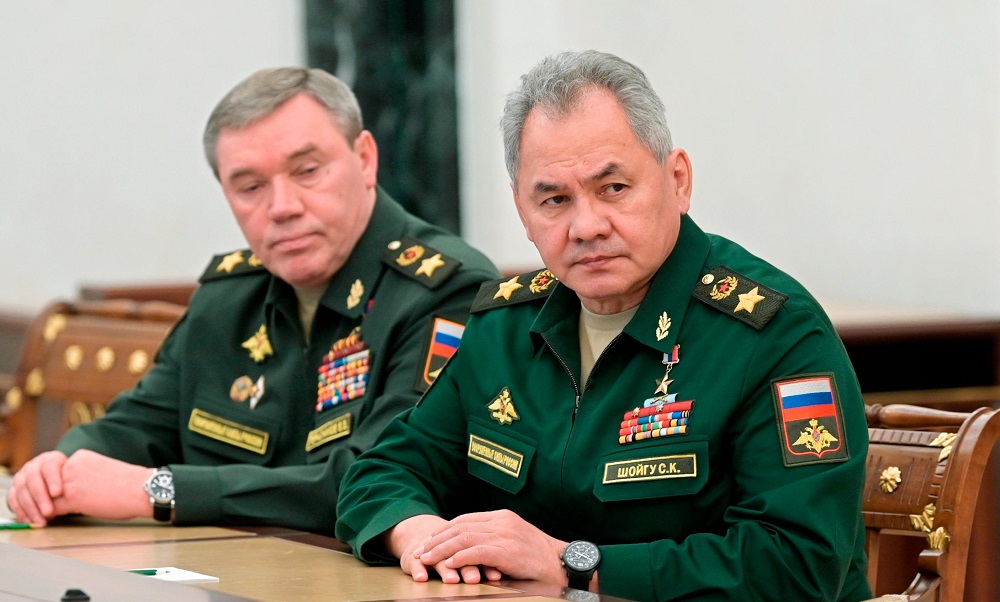
Russian Defense Minister Sergey Shoygu said on Friday that the main threat for the Shanghai Cooperation Organization (SCO) members emanates from Afghanistan where international terrorist groups find shelter due to unstable and indefinite political situation.
Speaking at a meeting of the SCO defense ministers in Kazakhstan’s capital Astana, Shoygu said Washington has stepped up efforts to restore its positions in Central and South Asia that were lost after the withdrawal of coalition troops from Afghanistan, Anadolu Agency reported.
The military chief called “unacceptable” the deployment of the American military infrastructure in the region, arguing that intentions should be regarded as “a direct threat to stability in the SCO space.”
According to him, the US is trying to impose a new security system in the Asia-Pacific region for dominance.
This comes as the Islamic Emirate has repeatedly emphasized that it does not allow anyone to pose threats to any other country from Afghanistan soil.
Recently, Mohammad Yaqub Mujahid, Acting Minister of National Defense Mohammad Yaqub Mujahid said that no destructive groups including Daesh have physical presence in Afghanistan,
Latest News
IEA calls Mujahideen Victory Day ‘freedom day’

In a statement on the occasion of the 32nd anniversary of the victory of the Mujahideen against the then communist government, the Islamic Emirate said that it is a day of freedom of the Afghan nation.
The Islamic Emirate described the coup by People’s Democratic Party of Afghanistan on 27th April 1978 as a dark day in history, as a result of which the people of Afghanistan suffered severe human and financial losses.
The statement said that the Afghan nation suffered huge casualties in their 14-year struggle against the thoughts and actions of the communists, as 1.5 million people died and millions more faced various hardships.
“After 20 years of Jihad, our country was freed from another occupation and the Islamic system was established, so the Islamic Emirate will make its utmost efforts so that the fruits of decades of sacrifice and struggle of this nation are not wasted,” the statement said.
“It was the wish of the martyrs to fully implement the Islamic system in the country, and therefore, the Islamic Emirate is trying to facilitate development and prosperity under the shadow of the Islamic system in order to realize the goals of the Afghan people’s jihads,” it added.
-

 Latest News4 days ago
Latest News4 days agoRashid Khan named AWCC’s brand ambassador
-

 World4 days ago
World4 days agoMalaysian navy helicopters collide in mid-air, 10 killed
-

 Sport4 days ago
Sport4 days agoJaiswal ton powers Rajasthan to big IPL win
-

 World4 days ago
World4 days agoNorth Korea officials visit Iran in a rare public trip
-

 Latest News5 days ago
Latest News5 days agoAt least 1,500 families affected by recent floods: IRW
-

 Sport4 days ago
Sport4 days agoMawj Sahil player scores stunning halfway line goal in 1-0 win over Jawanan Wahedi
-

 Sport3 days ago
Sport3 days ago‘Serious talent’ Fraser-McGurk bonds with Warner to light up IPL
-

 Latest News4 days ago
Latest News4 days agoUS report cites ‘significant deterioration’ in Afghan women’s rights last year




